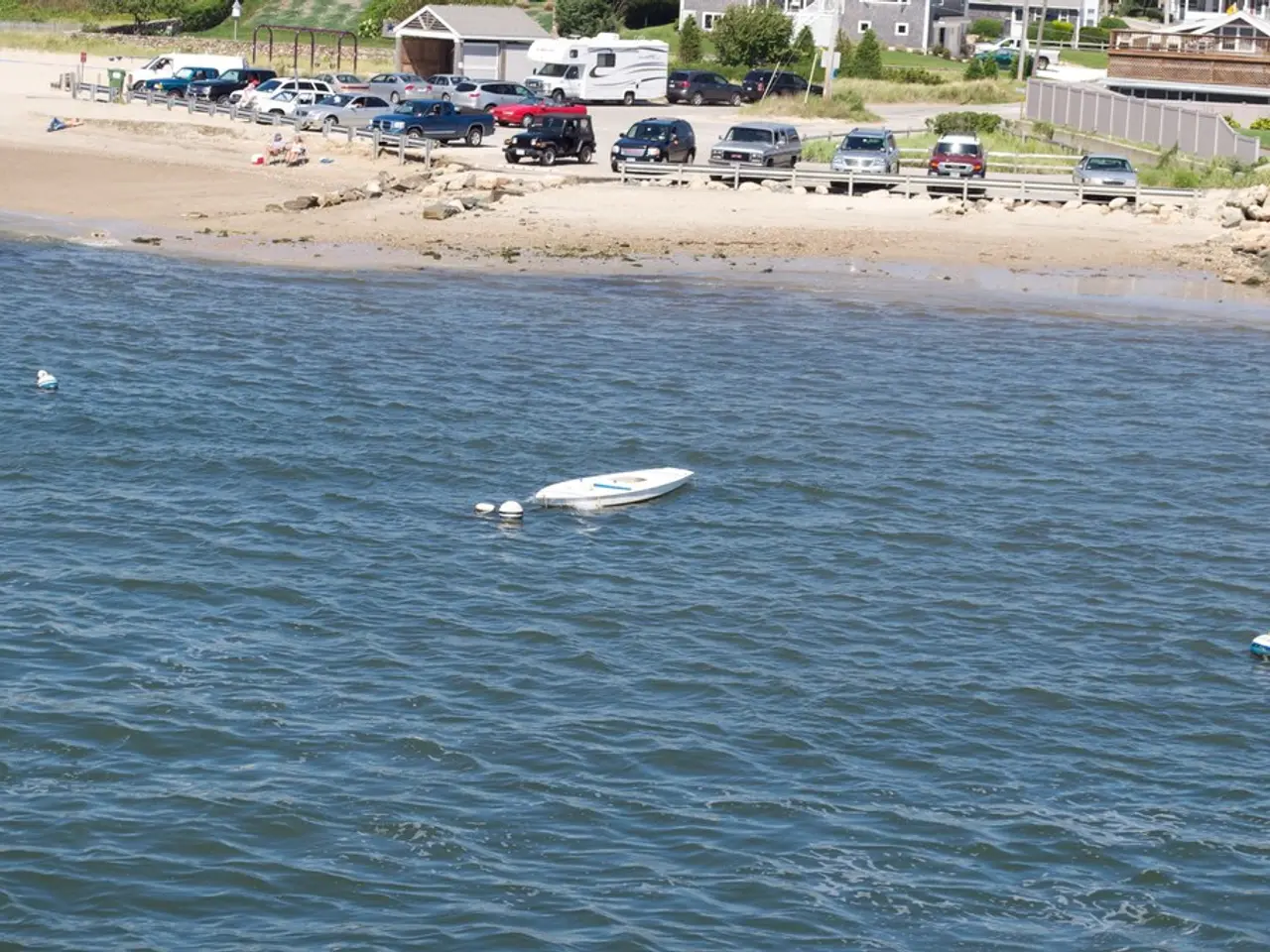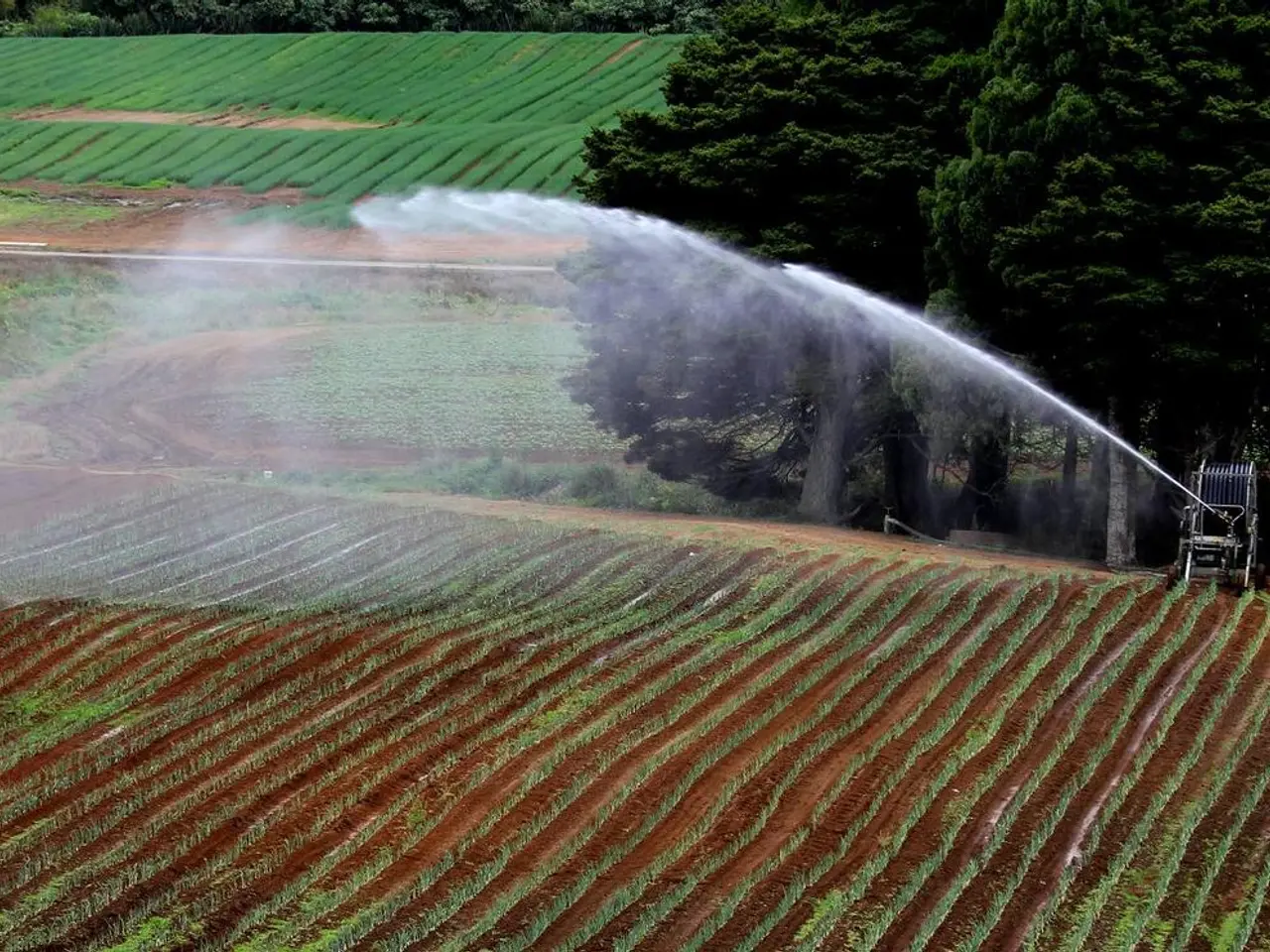Frustration surges due to prolonged confinement
The Kiel Canal, one of the world's busiest artificial waterways, has been closed since a recent oil spill near Brunsbüttel, and its reopening is scheduled for Tuesday at 12:00. However, the prolonged closure has raised concerns about its environmental impact, particularly in relation to marine pollution and ecosystem disruptions.
According to the Daily Port Report No. 1, January 3, 2023 (www.thb.info), the oil spill is larger than initially estimated, and it is the largest in recent years along the German coast. The spill has introduced toxic hydrocarbons and chemicals into the local marine environment, potentially harming marine flora and fauna and disrupting sensitive habitats.
The closure of the Kiel Canal has forced vessels to reroute around longer and potentially more ecologically vulnerable marine areas such as the Danish Straits and the Baltic Sea open waters. This re-routing could increase the risk of further incidents, pollution events, and traffic-related disturbances in these alternative routes.
The impacted area around Brunsbüttel and the western entrance to the Kiel Canal is ecologically significant as it lies at the transition between the North Sea and the Baltic Sea, both with complex and sensitive marine carbon and ecological dynamics. Disruptions in water flow, marine traffic, and contamination may destabilize local marine carbon cycles and ecological monitoring efforts.
Moreover, Jens B. Knudsen, chairman of the Kiel Canal initiative, has questioned the proportionality of the closure, stating that, for a week now, it's been said that 99.5% of the oil has been recovered, but the canal remains closed. Knudsen added that the detour for ships around Skagen puts a much greater strain on the environment.
Knudsen and the Kiel Canal initiative have also criticized the prolonged closure of the waterway and suggested that there needs to be discussion on how to handle such cases in the future. Knudsen expressed concern about the environmental strain caused by the detour for ships around Skagen.
While no specific data on the 2025 Brunsbüttel oil spill impacts are available, historical context on groundings and maritime accidents highlights significant environmental risk from ship incidents, including oil spills, which are often followed by costly and complex clean-up and ecological restoration efforts.
In summary, the main environmental impacts from the prolonged Kiel Canal closure due to the oil spill near Brunsbüttel likely include local marine pollution, disruption to sensitive ecosystems in a key transition zone between seas, increased environmental risks due to forced rerouting of maritime traffic, and potential destabilization of marine ecological monitoring in the region. The combined effects underscore the need for careful spill response and monitoring to mitigate long-term environmental harm.
[1] Marine Carbon Research [2] Daily Port Report No. 1, January 3, 2023 [3] Kiel Canal Initiative [4] Historical Context of Oil Spills [5] International Trade Flows
- The prolonged closure of the Kiel Canal due to the oil spill near Brunsbüttel may affect marine carbon cycles due to disruptions in water flow.
- The Kiel Canal Initiative, led by Jens B. Knudsen, has raised concerns about the environmental impact of the prolonged closure, particularly the increased strain on the environment due to forced rerouting of ships.
- Historical data on groundings and maritime accidents indicate significant environmental risks associated with oil spills, which often require costly and complex clean-up and ecological restoration efforts.




